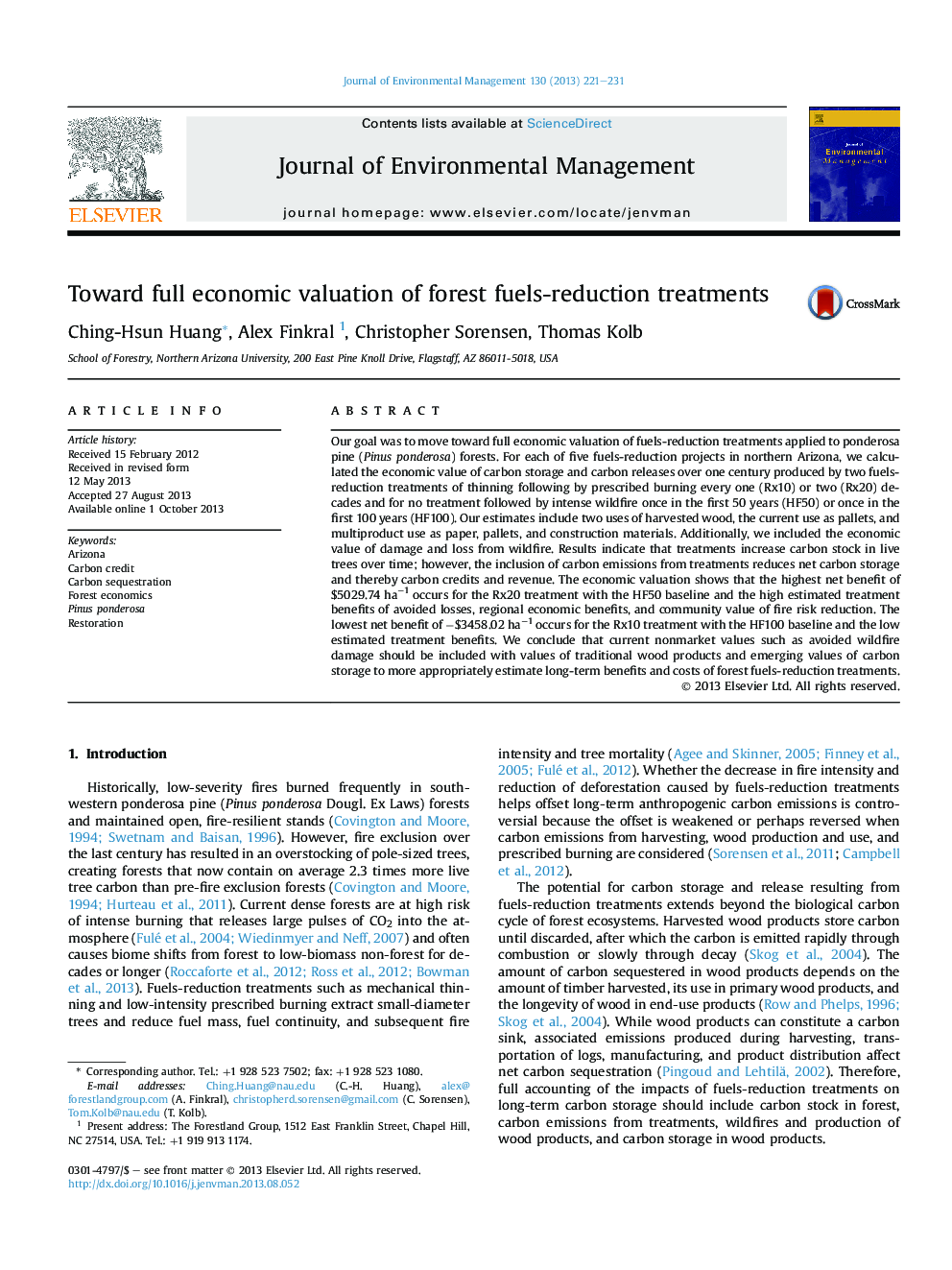| کد مقاله | کد نشریه | سال انتشار | مقاله انگلیسی | نسخه تمام متن |
|---|---|---|---|---|
| 1056090 | 1485282 | 2013 | 11 صفحه PDF | دانلود رایگان |

• This study estimates long-term benefits and costs of fuels-reduction treatments.
• The inclusion of carbon emissions reduces net carbon storage and carbon credits.
• Carbon credits will increase as wood product life lengthens.
• Carbon credits and revenues vary over fuel-reduction projects among sites.
• Including avoided damage advances efforts to estimate impacts of treatments.
Our goal was to move toward full economic valuation of fuels-reduction treatments applied to ponderosa pine (Pinus ponderosa) forests. For each of five fuels-reduction projects in northern Arizona, we calculated the economic value of carbon storage and carbon releases over one century produced by two fuels-reduction treatments of thinning following by prescribed burning every one (Rx10) or two (Rx20) decades and for no treatment followed by intense wildfire once in the first 50 years (HF50) or once in the first 100 years (HF100). Our estimates include two uses of harvested wood, the current use as pallets, and multiproduct use as paper, pallets, and construction materials. Additionally, we included the economic value of damage and loss from wildfire. Results indicate that treatments increase carbon stock in live trees over time; however, the inclusion of carbon emissions from treatments reduces net carbon storage and thereby carbon credits and revenue. The economic valuation shows that the highest net benefit of $5029.74 ha−1 occurs for the Rx20 treatment with the HF50 baseline and the high estimated treatment benefits of avoided losses, regional economic benefits, and community value of fire risk reduction. The lowest net benefit of −$3458.02 ha−1 occurs for the Rx10 treatment with the HF100 baseline and the low estimated treatment benefits. We conclude that current nonmarket values such as avoided wildfire damage should be included with values of traditional wood products and emerging values of carbon storage to more appropriately estimate long-term benefits and costs of forest fuels-reduction treatments.
Journal: Journal of Environmental Management - Volume 130, 30 November 2013, Pages 221–231